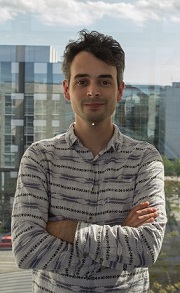
In a few days’ time, on the 27th January 2017, I will be defending my PhD dissertation at the University of Copenhagen; just a few days after then, I will be bringing my period as a researcher at the Center for Subjectivity Research to a close. While I look forward to the former event with nervous excitement, having by now shed most strivings to infinitely rework the dissertation into an ever inaccessible state of perfection, my feelings about leaving the CFS are certainly more apprehensive. Having spent most of the last five years in the midst of the initially exotic ‘Subjektivitetsforskning’, its heady blend of, amongst many other virtuous traits, philosophical openness, resistance to entrenched boundaries, fascination with the mysteries of sociality and selfhood, and high scholarly standards, all now feels entirely natural. I will sorely miss participating in such a unique and engaging research community. Rather than eulogising the closing chapter of my life spent at the Center, however, the present post will rather outline the product of that period of time, namely, the contents of my doctoral dissertation.
Read moreJames Jardine / Empathy, Embodiment, and the Person